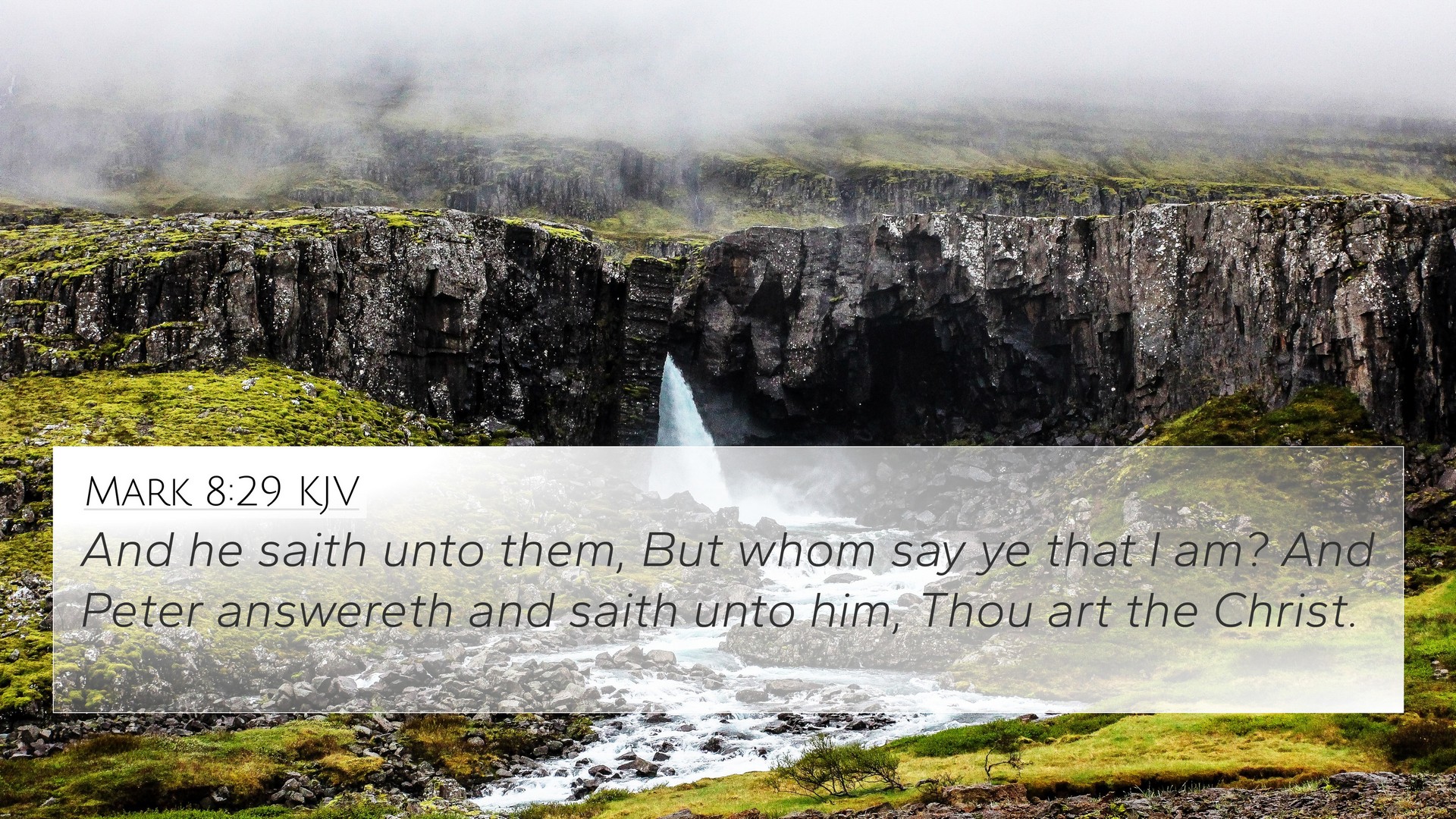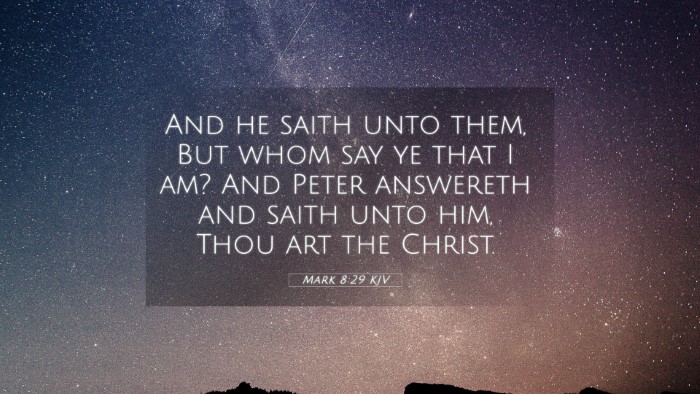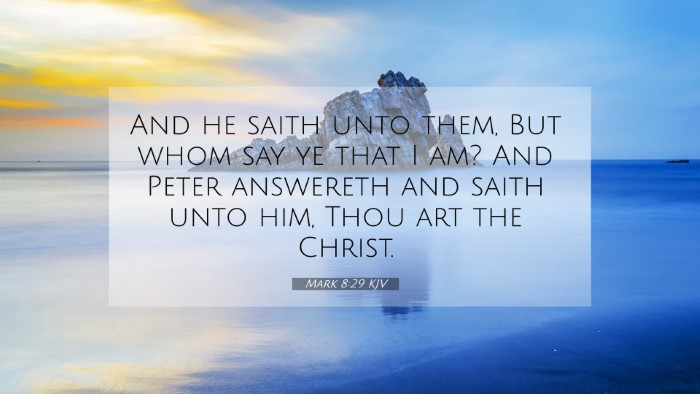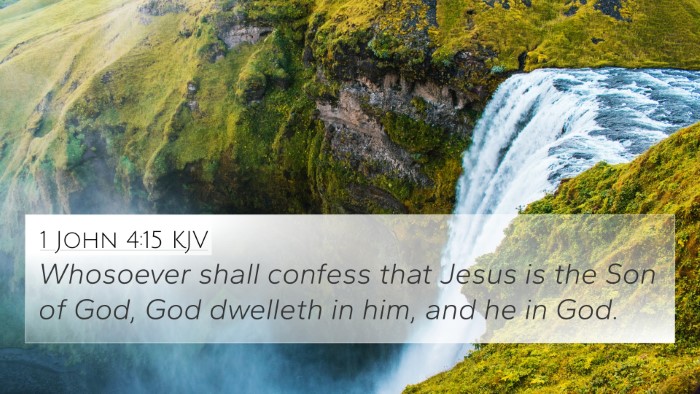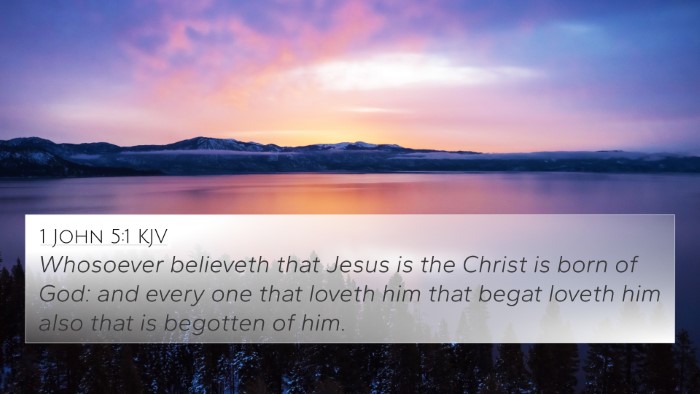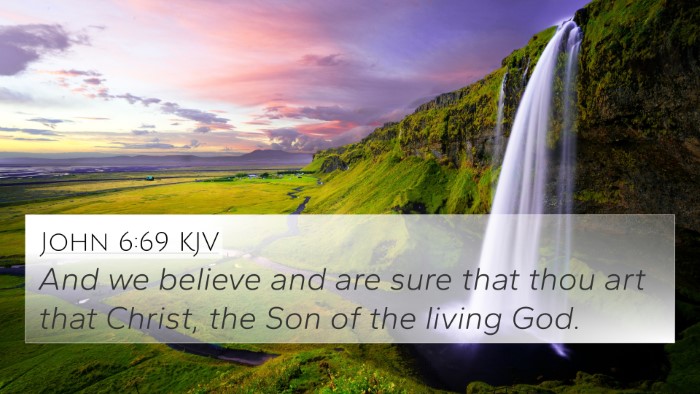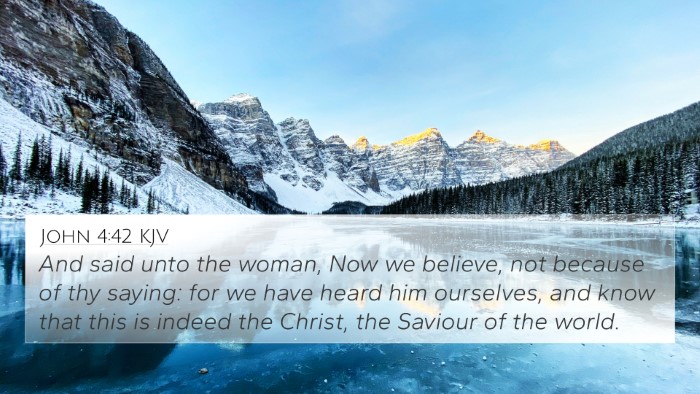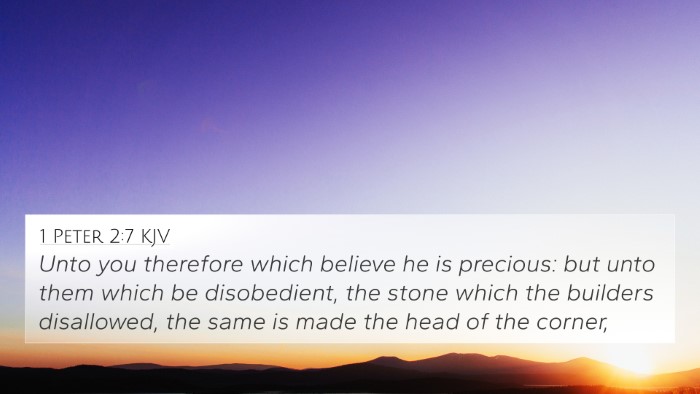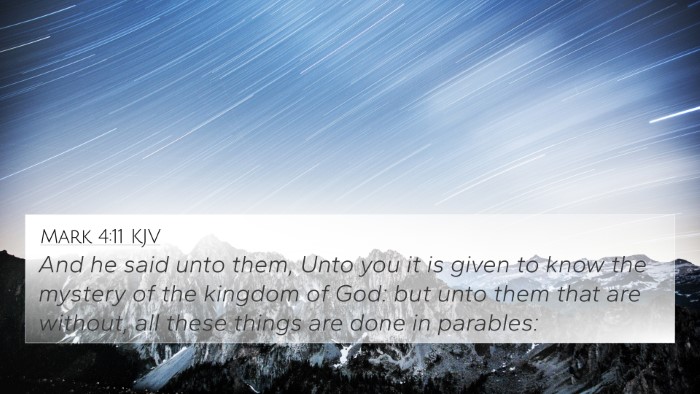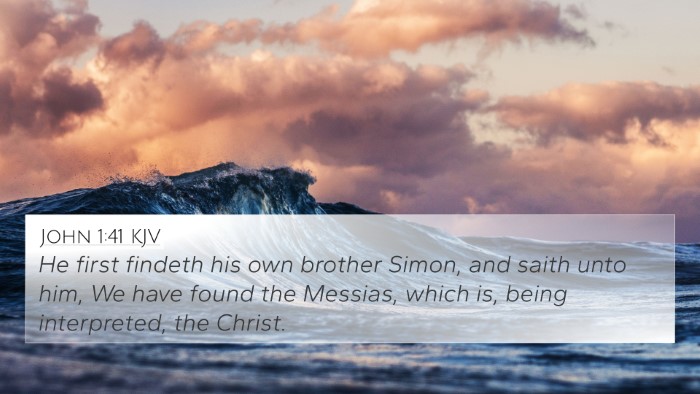Understanding Mark 8:29
Mark 8:29 states, "But what about you?" he asked. "Who do you say I am?" Peter answered, "You are the Messiah." This verse captures a pivotal moment in the Gospels, where the identity of Jesus is recognized by His disciple Peter. Below, we provide a detailed interpretation based on insights from public domain commentaries.
Verse Meaning and Interpretation
This verse emphasizes the question of identity, which is central to the Christian faith. In his commentary, Matthew Henry highlights the importance of personal conviction in recognizing Jesus as the Messiah. He explains that this proclamation reflects divine revelation, as Peter's recognition comes from a deeper understanding granted by God.
Albert Barnes remarks that this moment is foundational; it encapsulates the essence of Peter's faith and the recognition of Jesus' messianic role. Barnes emphasizes that acknowledging Jesus as the Messiah is crucial for understanding His mission on earth and the salvific plan of God.
Adam Clarke adds to this interpretation by noting the implications of Peter’s declaration. For Clarke, recognizing Jesus as the Messiah implies acceptance of His teachings and the expectation of His kingdom. This acknowledgment sets the stage for the events leading to the crucifixion and resurrection.
Thematic Connections
Mark 8:29 is rich with thematic connections to other biblical texts, showcasing the inter-Biblical dialogue regarding the Messiah’s identity. Below are some relevant cross-references that relate to this verse:
- John 1:49: Nathanael's declaration of Jesus as "the Son of God." This illustrates recognition of Jesus' divine authority.
- Matthew 16:16: A parallel account where Peter proclaims Jesus as "the Christ, the Son of the living God." This strengthens the understanding of Jesus' messianic mission.
- Luke 9:20: Similar to Mark's account, this passage urges believers to answer who Jesus is, focusing on personal faith.
- Isaiah 53:3-5: Prophecies about the suffering servant, pointing toward the need for a Messiah, which Peter acknowledges.
- Romans 1:3: The apostolic recognition of Jesus as the descendant of David, reinforcing His messianic lineage.
- Acts 2:36: Peter's preaching at Pentecost where he declares Jesus as both Lord and Christ, reiterating his earlier confession.
- John 6:69: Peter acknowledges Jesus as "the Holy One of God," linking back to the acknowledgment of His divine authority.
- 1 John 5:1: Talking about the belief that Jesus is the Christ connects the understanding of faith and identity of Jesus.
- Matthew 1:21: The naming of Jesus, which indicates his purpose to save His people, underlines the messianic role Peter identifies.
Connections Between Bible Verses
The confession made by Peter in Mark 8:29 connects deeply with the overall narrative of the Gospels and the fulfillment of Old Testament prophecy. As believers explore the connections between Bible verses, they can utilize various tools for Bible cross-referencing to deepen their understanding.
- Bible Cross-Reference Guide: Such guides allow users to trace themes and identities across Scriptural texts.
- Bible Concordance: A useful tool that provides an alphabetical listing of key terms and shows the verses where they can be found.
- Comprehensive Bible Cross-Reference Materials: These resources help believers connect narratives and teachings throughout the canon.
Cross-Referencing Biblical Texts
The methodology of cross-referencing is vital for anyone studying the Scripture, as it reveals the depth of connections between various passages. When examining Mark 8:29, it is essential to ask:
- How do Old Testament prophecies align with New Testament revelations of Jesus' identity?
- What verses parallel Peter's confession and elaborate on the implications of acknowledging Jesus as the Messiah?
Conclusion
Mark 8:29 serves as a cornerstone for understanding Jesus' identity and the foundation of faith among His disciples. By exploring the connections between Bible verses, one can appreciate the rich tapestry of Scripture that culminates in recognizing Christ as the Messiah. The insights drawn from Matthew Henry, Albert Barnes, and Adam Clarke highlight the depth and importance of this verse in biblical theology.
